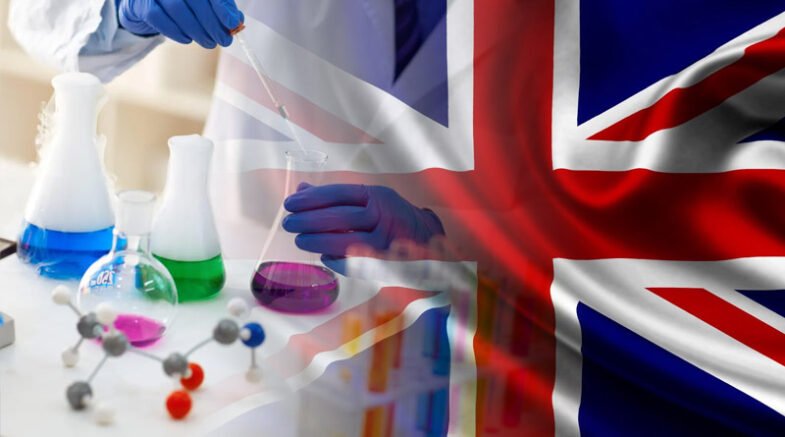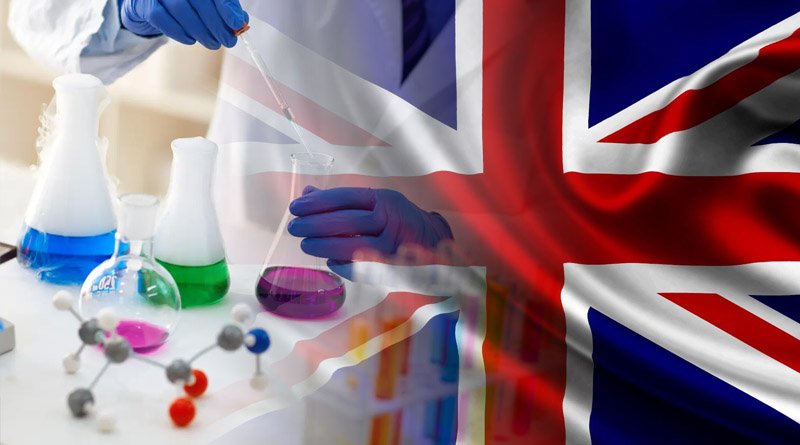A security expert said the number of academics being barred is “commensurate with the threat,” and some people have praised the policy change.

In the midst of a significant government crackdown on research collaborations with China, more than 1,000 scientists and graduate students were prohibited from entry in the UK last year on national security grounds.
According to data obtained by the Guardian, a record 1,104 postgraduate students and scientists were rejected entry by UK Foreign Office’s vetting process in 2022, up from 128 in 2020 and just 13 in 2016.
The sharp increase comes after the government’s stance on scientific collaborations with China hardened, with MI5 warnings of a growing espionage threat, the covert closure of significant research facilities, and allegations by a government minister that China’s top genomics company routinely attempted to hack into the NHS’s genetic database.
This week saw an increase in geopolitical tensions as the US, Australia, and the UK announced a multi-decade, multi-billion dollar agreement to halt China’s military buildup in the Indo-Pacific. A path of error and danger, according to China, is the Aukus plan to construct a combined fleet of elite nuclear-powered submarines.
The Foreign Office declined to break down clearance requests by nationality, but information provided by prestigious universities like Oxford, Cambridge, and Imperial College suggests that, at least at these colleges, Chinese academics make up the majority of those who are turned down.
A security expert said the number of academics being barred is “commensurate with the threat,” and some people have praised the policy change. But top scientists claim that the plan is making it difficult for universities to attract the best talent from abroad.
The process was “becoming a roadblock,” according to Prof. Sir Peter Mathieson, principal and vice-chancellor of Edinburgh University, because of the protracted delays and the “blanket” manner in which vetting was being implemented.
Universities are very aware of the need to comprehend and reduce risk, the speaker said. “However, we don’t believe it’s in anyone’s best interests for research projects to be delayed or staffing efforts to be delayed. It’s a serious problem.”
The Foreign Office’s Academic Technology Approval Scheme (ATAS) requires those from countries subject to immigration control to apply for clearance to work on so-called dual-use research and other “sensitive” subjects.
In 2016, 13 of those who applied were rejected, but as relations between China and the West have soured, security has been ramped up. In 2020, 128 scientists and students’ entry of UK were rejected, rising to 951 in 2021. ATAS was expanded in 2020 to cover weapons of mass destruction and further expanded in 2021 to cover researchers, as well as postgraduate students.
According to data obtained through a freedom of information request, 1,104 of the 50,000 applicants were turned down last year, including 839 students and 265 researchers. The majority of applicants are reportedly scientists who want to immigrate to the UK in order to accept fellowship or research degree offers.
The Guardian is also aware of researchers, including five Chinese scientists at Imperial College, who failed clearance despite holding positions at UK universities for a number of years. As a result, these researchers may have been forced to leave the UK.
A tightening of security was “encouraging in a sense,” according to Charles Parton, a China expert at the Royal United Services Institute (Rusi), but he criticised the government for failing to clearly articulate its broader policy objectives, including which fields of science are off-limits.
He claimed that no one is aware of the details of any China strategy. “One of the most important issues that requires attention is scientific collaboration with China. If there was a clear definition of what we could cooperate on, there wouldn’t be any rejections in the end.”
The “hard U-turn” that had taken place over the previous two years, according to Prof. James Wilsdon, professor of research policy at UCL, was at odds with the government’s goal of making the UK a “science superpower,” even though there were legitimate security concerns about strategically sensitive technologies and human rights. We went from declaring a new “golden age” in bilateral relations with China to deep-freezing our scientific ties, he said.
Academic leaders are concerned that long delays in student application approvals are leaving scientists, students, and research projects in limbo.
The government expanded the scope of the Academic Technology Approval Scheme in 2020 and again in 2019, requiring more academics from overseas to be approved before working in the UK. However, the refusal rate remains low, with the majority of applications processed within 30 working days.
